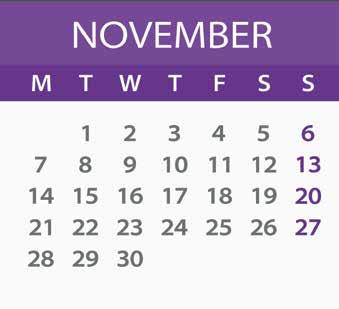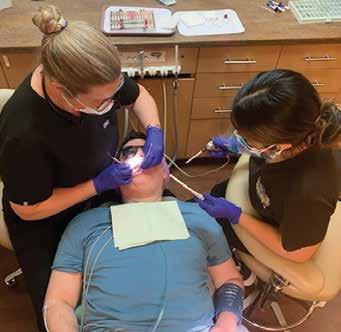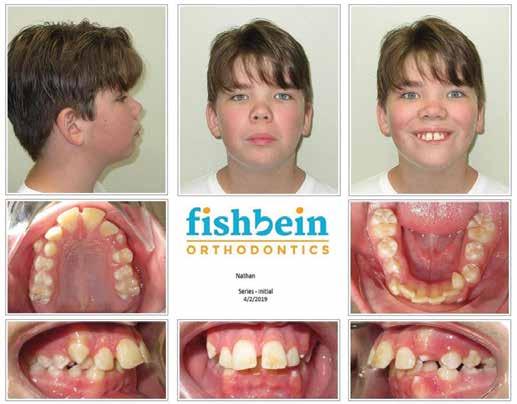
2 minute read
Accessing Dental Care
By Timothy Garvey, DMD
It has become well known that dental care is not able to be accessed by many people who have disabling conditions. There are several reasons.
One of the most common is the inability of the patients to cooperate with receiving dental care in a “routine” setting. Whereas this is very true for many of these patients whose caregivers are seeking a dental home, it is not always the case. Often, with some alterations in the dental procedures, high-level care can be provided in an office setting.
Another is the reimbursement system available to a large number of these patients, typically the Florida Medicaid system. The level of reimbursement is such that recruiting dentists to be Medicaid providers is challenging.
Complex medical problems sometimes result in the need for interdisciplinary efforts incorporating other health care providers to allow dental treatment to be safely provided.
On July 1, 2022, an outreach program was started in Marion County, focused on increasing availability of dental services for persons who have developmental disabilities. The program resulted from a collaborative effort by the FreeDOM Clinic USA, the Marion County Hospital District, the University of Florida College of Dentistry, and Advent Health Hospital of Ocala, Florida.
The need for a program of this type was apparent to the members of the Marion County Hospital District. Persons with disabling conditions often seek care in hospital emergency departments, usually when the patient is displaying signs or symptoms of oral pain. In most of these circumstances, the hospital staff cannot provide any type of definitive care other than an antibiotic prescription (which may or may not be appropriate for the pathology), pain medication and a suggestion that definitive care be provided by a dentist. This is often repeated, since dental care is not subsequently obtained. All of this may result in a significant cost to the patient, or necessitating the hospital to write off the charges as uncollectable, and the patient still not receiving care.
With startup funding by the Marion County Hospital District, a dental clinic was started, focusing on this special group of patients. The goal is to provide care that is currently needed, and hopefully provide preventive care on an ongoing basis.
An important fact to mention is that to ensure continuity of care, this is not staffed by volunteers. Rather, the staff are regular employees, with a unique focus on dental care for people with disabling conditions. This obviously requires financial support. The cost savings to the hospital district is significant enough for this to be considered acceptable.
The need for a facility to provide dental care utilizing general anesthesia was highlighted from the beginning. The administration of Ocala’s Advent Health Hospital became aware of the situation. Their generosity has resulted in the availability of regular use of Advent Hospital’s operating rooms to provide comprehensive dental care for the most challenging cases.
It is hoped that this will become a clinical site for the students of the University of Florida College of Dentistry. This will hopefully allow these future dentists to more readily incorporate “special needs” patients into their practice of dentistry.
This could also be viewed as a pilot project. This project has begun by using resources on a local level in Marion County. There is great potential for other similar programs to be developed in areas throughout the State of Florida.










